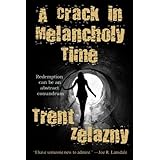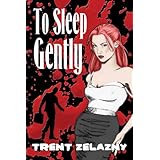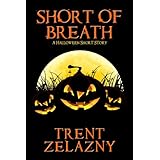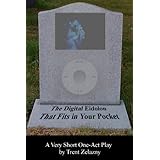
APB-SAL is a blog about education, science, science education, fiction, science fiction, literature, literary stories, poetry, and anything else that strikes the blogger's fancy. NOTE: This blog interrogates art. It rarely make moral proclamations. For that attend the church or politician of your choice. This blog concerns aesthetics, not propaganda. Consider this as interviews with books where the interviewer presents interviewees, so you get what you need to do your own thinking.
Friday, July 26, 2013
Traveling Nicaragua
I'll be incommunicado until early August as I visit various countries. Nos vemos!
Sunday, July 21, 2013
Orson Scott Card on ideas
"[N]othing is sillier than a story that provokes only one response from society."
--Orson Scott Card, How to Write Science Fiction and Fantasy
Note: I've never read a better book on generating ideas and turning them into stories. This needs an ebook edition.
Saturday, July 20, 2013
Orson Scott Card on ideas
"[In] stories that are any good at all, ... [e]very event has more than one cause and more than one result."
--Orson Scott Card, How to Write Science Fiction and Fantasy
Note: I've never read a better book on generating ideas and turning them into stories. This needs an ebook edition.
Friday, July 19, 2013
Orson Scott Card on ideas
"[T]he idea net consists of three questions: 'Why?' 'How?' and 'What result?' "
--Orson Scott Card, How to Write Science Fiction and Fantasy
Note: I've never read a better book on generating ideas and turning them into stories. This needs an ebook edition.
Thursday, July 18, 2013
Orson Scott Card on ideas
"[O]utlines and sketches, maps and histories, jotted scenes and scraps of dialogue [are] the writer's equivalent of what a composer does when he plinks out a new theme on the piano, just to hear it. He doesn't immediately score and orchestrate the theme. First, he has to play it over and over, varying it, changing rhythms, pitches, key, imagining different harmonies and countermelodies. By the time the composer... arrange[s] and orchestrate[s] the piece, the theme will have been transformed many times over."
--Orson Scott Card, How to Write Science Fiction and FantasyNote: I've never read a better book on generating ideas and turning them into stories. This needs an ebook edition.
Wednesday, July 17, 2013
Orson Scott Card on ideas
"[T]hink of everything as a potential story."
--Orson Scott Card, How to Write Science Fiction and FantasyNote: I've never read a better book on generating ideas and turning them into stories. This needs an ebook edition.
Tuesday, July 16, 2013
Orson Scott Card on ideas
"[H]elp an idea ripen... [by] writing a draft."
--Orson Scott Card, How to Write Science Fiction and FantasyNote: I've never read a better book on generating ideas and turning them into stories. This needs an ebook edition.
Monday, July 15, 2013
Orson Scott Card on ideas
"[H]elp an idea ripen... [by] writing a draft."
--Orson Scott Card, How to Write Science Fiction and FantasyNote: I've never read a better book on generating ideas and turning them into stories. This needs an ebook edition.
Sunday, July 14, 2013
Orson Scott Card on ideas
"[H]elp an idea ripen... [by] writing a draft."
--Orson Scott Card, How to Write Science Fiction and FantasyNote: I've never read a better book on generating ideas and turning them into stories. This needs an ebook edition.
Saturday, July 13, 2013
Orson Scott Card on ideas
"[G]ood stories don't come from trying to write a story the moment I think of the first idea... [rather] from combining two completely unrelated ideas that have been following their own tracks through my imagination."
--Orson Scott Card, How to Write Science Fiction and FantasyNote: I've never read a better book on generating ideas and turning them into stories. This needs an ebook edition.
Friday, July 12, 2013
Orson Scott Card on ideas
"[I]mpromptu additions would not have been possible had I not laid down many strata of creation before I started that draft."
--Orson Scott Card, How to Write Science Fiction and FantasyNote: I've never read a better book on generating ideas and turning them into stories. This needs an ebook edition.
Thursday, July 11, 2013
David Farland/Wolverton links
David Farland's book giveaway for Nightingale.
His family still needs to raise $1.3 million dollars.
In light of what can happen to freelance writers, as had happened to Wolverton's son, Kristine Kathryn Rusch recommends taking out insurance.
David Farland, Frank Herbert, Michael Stackpole, Gregory Benford, Kevin J. Anderson, Kristine Kathryn Rusch, Mike Resnick, B. V. Larson s story bundle--you decide what to pay.
Review: A Crack in Melancholy Time by Trent Zelazny
Crack in Melancholy Time (great title) is the sequel novella that began with Fractal Despondency.
Blake Gladstone has lost Sarah, his girlfriend, to suicide and doesn't know if he should join her. Worse, he loses another, Denise [Fractal Despondency treats their relationship]. Homeless, jobless, but full of alcoholism and cigarettes, he slinks home to Santa Fe. Visions and memories of his old girlfriends return as he struggles with survivor guilt. He has to face his miseries and miserable thinking.
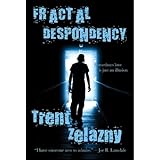
Blake gets a second (or third chance) with Laura, an old high school friend who's as lost, and messed up with alcohol ss he is. If he can save her, maybe he can save some of what he's lost.
Another reader compared these novellas to Charles Bukowski. I immediately disagreed until I reread it. Yes, they differ in humor and tone, but they share a concern for capturing the dark hole some have struggled to climb out of. The events are a bit discombobulated, mirroring the title and Blake's own mind.
Whether you should read this depends on where you stand on these two aesthetic matters:
- If you groove on the opening line:
- and if you agree with William Wordsworth's idea that art should be "emotion recollected in tranquility" [Preface to Lyrical Ballads William Wordsworth (1800)]. This is a direct feed from the raw, real emotion, written when similar events had just occurred to the author.
"A sad-voiced specter with piercing eyes flitted in the nightime as dewy air filled the malevolent room."
Good line:
- "Her balance was that of an antique doll."
Orson Scott Card on ideas
"There have to be strict limits on magic... [A] price has to be paid for every... magical power."
--Orson Scott Card, How to Write Science Fiction and FantasyNote: I've never read a better book on generating ideas and turning them into stories. This needs an ebook edition.
Wednesday, July 10, 2013
Book Review: To Sleep Gently by Trent Zelazny
After time spent in jail, Jack Driscoll or "Dempster" is picked up by Charlie to do another job. This time in Santa Fe, New Mexico, joining others professional criminals he's not sure he trusts to rob the El Dorado Hotel.
While there, though, he hooks up with old friends who are trying to make it, and he falls for Sandra, a young woman who might encourage him to go straight. However, neither the relationship nor the hotel job go as he'd planned.
The middle sags some, but the beginning and end take up the slack. The characterization--testosterone-driven male interaction, posturing and bullying--here is spot-on. It's the impressive kind of characterization that convinces readers of their reality, demonstrating how Zelazny's work has gained a sheen of maturity and power.
While there, though, he hooks up with old friends who are trying to make it, and he falls for Sandra, a young woman who might encourage him to go straight. However, neither the relationship nor the hotel job go as he'd planned.
The middle sags some, but the beginning and end take up the slack. The characterization--testosterone-driven male interaction, posturing and bullying--here is spot-on. It's the impressive kind of characterization that convinces readers of their reality, demonstrating how Zelazny's work has gained a sheen of maturity and power.
Trent Zelazny interviews, etc.
Interviews with Trent Zelazny:
- This video interview with "Steven" a cartoon character is weird and creepy, with an odd sense of humor. Not informative except you get to see and hear the author talk.
- She Never Slept Interviews Trent Zelazny -- rather discursive audio interview
- Voluted Tales (Aaron Smith)
- Gingernuts of Horror (template interview)
- Examiner.com's Gabrielle Faust
- Curiouser and Curiouser (off-the-wall questions)
Other Interesting Bits:
- According to Wikipedia: "Zelazny cites his biggest influences as those from the pulp era. David Goodis, Cornell Woolrich, Jim Thompson, Jonathan Craig, as well as Joe R. Lansdale and Donald E. Westlake, and several of the existentialists, most notably Soren Kierkegaard and Jean-Paul Sartre. He also commonly acknowledges Jane Lindskold as his greatest mentor."
Orson Scott Card on ideas
"[SF] and fantasy ideas are ridiculously easy to come up with. [Ask] questions."
--Orson Scott Card, How to Write Science Fiction and FantasyNote: I've never read a better book on generating ideas and turning them into stories. This needs an ebook edition.
Tuesday, July 9, 2013
Short of Breath: A Halloween Short Story by Trent Zelazny
This is a short story available through Cemetary Dance.
Ian Cain suspects his wife has had an affair. When he kills her, he thinks she's brought this on herself. He covers up his tracks by pretending to have stayed at work, and later to go to the Halloween party she wanted to attend. But irony strikes.
Zelazny does a good job teasing and milking the irony, slowly, drop by drop.
Ian Cain suspects his wife has had an affair. When he kills her, he thinks she's brought this on herself. He covers up his tracks by pretending to have stayed at work, and later to go to the Halloween party she wanted to attend. But irony strikes.
Zelazny does a good job teasing and milking the irony, slowly, drop by drop.
Review: The Digital Eidolon That Fits in Your Pocket by Trent Zelazny
The Digital Eidolon That Fits in Your Pocket is another 10-minute play by Trent Zelazny, but this one's more of a glimpse of the near future where a human can be uploaded into a digital eidolon.
Sean has just lost his wife, Jennifer. Dobbs visits him right after the funeral to sell Sean an iPod of his wife--a wife that talks to and interacts with him as if she were right there. Sean is less than pleased.
While this goes where you might expect it to, Zelazny is able to do something impressively potent with your emotions. It's an interesting layered work worth reading and probably worth watching. Zelazny says he doesn't write SF or fantasy, but this proves him a dirty liar.
Sean has just lost his wife, Jennifer. Dobbs visits him right after the funeral to sell Sean an iPod of his wife--a wife that talks to and interacts with him as if she were right there. Sean is less than pleased.
While this goes where you might expect it to, Zelazny is able to do something impressively potent with your emotions. It's an interesting layered work worth reading and probably worth watching. Zelazny says he doesn't write SF or fantasy, but this proves him a dirty liar.
Orson Scott Card on ideas
"[I]magine what could be worse. Not more life-threatening--simply worse to see. Worse to live through."
--Orson Scott Card, How to Write Science Fiction and FantasyNote: I've never read a better book on generating ideas and turning them into stories. This needs an ebook edition.
Monday, July 8, 2013
Review: Not Any Little Girl by Trent Zelazny
A ten-minute suspense play on Amazon, first performed in Santa Fe.
Grant Harrington, a new comer to New Mexico, wants to rent from Cora Newsted a coffee house in town. But he's actually there to murder Cora's seventeen-year-old sister, Lecy. Grant doesn't want to do it, but the people he works for are putting the screws on him. Lecy, though, is pretty worldly and suspects Grant's interest. She's got her own game.
The set-up seems a little elaborate, renting a coffee shop just to kill someone and the person who has a different agenda, but the tale has a pleasant twist--that is, an unpleasant kind of pleasant.
Grant Harrington, a new comer to New Mexico, wants to rent from Cora Newsted a coffee house in town. But he's actually there to murder Cora's seventeen-year-old sister, Lecy. Grant doesn't want to do it, but the people he works for are putting the screws on him. Lecy, though, is pretty worldly and suspects Grant's interest. She's got her own game.
The set-up seems a little elaborate, renting a coffee shop just to kill someone and the person who has a different agenda, but the tale has a pleasant twist--that is, an unpleasant kind of pleasant.
The Idea of Ideas and IO9's interest in Avatar
From the article titles alone, IO9 appears to like Avatar with a desire to have it shell out money to certain parties.
With Robert Sheckley, I discussed the similarities between Stephen King's Running Man and Sheckley's "The Prize of Peril". Sheckley said he had called up King and asked about that. King admitted he'd read the story and admired it, but it had been awhile. Essentially, grist for the mill. Sheckley accepted the answer. What a generous heart that man had.
- James Cameron explains Avatar 2 delays: “I'm living in Pandora right now” My interpretation: Avatar 2 is coming--Yay!
- The Complete List Of Sources Avatar's Accused Of Ripping Off. Example quote: "Is there a case? James Cameron came out and admitted it, last summer." Which sounds like a direct conviction of Cameron in the court of IO9; however, it gives Cameron a say, "I just gathered all this stuff in and then you look at it through the lens of science fiction and it comes out looking very different but is still recognizable in a universal story way."
- A History of Plagiarism Claims Against James Cameron. My interpretation: Cameron has a history of ripping people off, so he's probably guilty.
- Did Prog Rock's Greatest Artist Inspire Avatar? All Signs Point To Yes. My interpretation: guilty! However, the title is a pun.
- Avatar Sparks New Interest In The Strange Visions That Inspired It. My interpretation: Additional evidence! I suspect the article is merely intended to celebrate Roger Dean.
The authors seem semi-unbiased--Charlie Jane Anders appeared to place little stock in the claims in the comment section: "you could easily do a list like this for Star Wars. It's just funny how eager people have been to point out what sources Avatar 'ripped off.' " But the titles as a group do accidentally lead us to the subtext that Cameron is guilty.
This brings up a slew of questions: Where's the demarcation? What is plagiarism? What's coincidence? What's homage? What's wrestling with other people's ideas? The waters get murky because if you've studied genre history and/or studied with James Gunn, you learn authors actually responded to one another's ideas. For example, Tom Godwin's "The Cold Equations" still has writers arguing with him. As does Robert Heinlein's Starship Troopers, which has some of the biggest names in the business respond: Joe Haldeman, Orson Scott Card, and John Scalzi.
This brings up a slew of questions: Where's the demarcation? What is plagiarism? What's coincidence? What's homage? What's wrestling with other people's ideas? The waters get murky because if you've studied genre history and/or studied with James Gunn, you learn authors actually responded to one another's ideas. For example, Tom Godwin's "The Cold Equations" still has writers arguing with him. As does Robert Heinlein's Starship Troopers, which has some of the biggest names in the business respond: Joe Haldeman, Orson Scott Card, and John Scalzi.
With Robert Sheckley, I discussed the similarities between Stephen King's Running Man and Sheckley's "The Prize of Peril". Sheckley said he had called up King and asked about that. King admitted he'd read the story and admired it, but it had been awhile. Essentially, grist for the mill. Sheckley accepted the answer. What a generous heart that man had.
Most likely the articles are intended to provoke thought and discussion although I can't help but feel some sympathy for the artist and wonder what's next for art, especially as copyrights keep getting extended indefinitely.
Orson Scott Card on ideas
"[T]hink of a reason why the [unplanned] mistake isn't a mistake at all."
--Orson Scott Card, How to Write Science Fiction and FantasyNote: I've never read a better book on generating ideas and turning them into stories. This needs an ebook edition.
Sunday, July 7, 2013
Lecture Review: How to Write a Short Story: The Basics. by Kristine Kathryn Rusch
If you write popular fiction, this should be worth your while. In ~1.25 hours, Rusch treats the 7-point plot structure (this differs from Dan Wells' 7-point plot structure--also worth looking over), which goes back to Scott Meredith Agency. Algis Budrys came under fire for writing a book about this as being simplistic; however, Rusch makes a good point that you should write your story first, then analyze your work with this system.
If you're planning on taking a course with Dean Wesley Smith, you may find overlap in the Idea-to-Story workshop (review) and may not find it necessary, but Rusch does have her slant.
If you're planning on taking a course with Dean Wesley Smith, you may find overlap in the Idea-to-Story workshop (review) and may not find it necessary, but Rusch does have her slant.
Top 5 posts of the Top 5 whatevers from one the top annoyingly difficult site to access, Time
Despite the silly title, these are some interesting posts. My access of the site was difficult at best. Hopefully, this will be resolved.
- Mysterious radio-wave blasts are alive with the sound of music.
- The Voyager probes: Where are they now?
- Ways to know you're watching a Steven Spielberg movie (only one is particularly interesting, and that is how he captures viewer and the viewed in one shot).
- Top 5 underrated SF movies (I agree with most choices. I haven't seen Silent Running nor did I know that they were underrated).
- Bartitsu: The Lost Martial Art of Sherlock Holmes
- Episode VII Star Wars
- Clearly, I can't count. Worse, this doesn't even link to anything.
Orson Scott Card on ideas
"[M]aking by maps of imaginary lands is a kind of story telling."
--Orson Scott Card, How to Write Science Fiction and FantasyNote: I've never read a better book on generating ideas and turning them into stories. This needs an ebook edition.
Saturday, July 6, 2013
MUST READ: Willam C. Martell's "Visual Storytelling"
Willam C. Martell's Visual Storytelling is a must read if you're a writer or someone interested in noticing effects movies strive after. This one's both fascinating and well documented. How many other books show one example and move on? Martell teaches a concept, and illustrates it sometimes three times over. You get the point.
And the points are all rather interesting. Half of my copy is underlined. Some topics covered:
And the points are all rather interesting. Half of my copy is underlined. Some topics covered:
- Characters need to be in action
- Contrast highlights both characters/situations/locations
- The point of dreams in narrative
- Meaningful symbolism, using the objects available, usually of import to character
- The power of objects -- their between character and emotion
- The importance visual imagery
- Telling character actions that define them and their goals
- Characters being offered something tangible when faced with choices
- Etc.
Thursday, July 4, 2013
Read Like A Writer (as told by Kristine Kathryn Rusch)
Francine Prose has a very dense book on How to Read Like A Writer. Kristine Kathryn Rusch's ~48-min conversational lecture "Read Like A Writer" has a different slant. Like her husband's online workshops, her focus is largely positive and she tries to focus you on the positives. She posted a similiar article here on her blog. Interesting quotes from her blog post:
- "Many writers don’t believe what I just wrote, and that’s fine. You need to define it for yourself."
- "If you want a career as a writer, ignore your critics."
- "...a thirty-minute critique of a romance novel by a hard-science fiction writer forced to read said romance novel as part of a workshop. You ain’t heard harsh until then.
- "If there were such a thing as a perfect sf story, then both editors would always buy the same stories, and you couldn’t tell the magazines apart. As readers, you all know this. As writers, you forget it."
- "editors also read for enjoyment. And if they’re not enjoying a book on page 2, they’ll jettison that book."
Wednesday, July 3, 2013
Dwight V. Swain on Characters III
" '[R]ationalize... why Character feels the way he does.... [P]lunge him into a pre-planned situation that challenges the part of him that cares, threatens the thing he feels important."-- Creating Characters, Dwight V. Swain
Dwight V. Swain on Characters II
"The core of character... lies in each... [character's] ability to care about something; to feel, implicitly or explicitly, that something is important."-- Creating Characters, Dwight V. Swain
Tuesday, July 2, 2013
Dwight V. Swain on Characters I
"[C]haracter is... inextricably linked to context. Separated..., [character] becomes meaningless."-- Creating Characters, Dwight V. Swain
